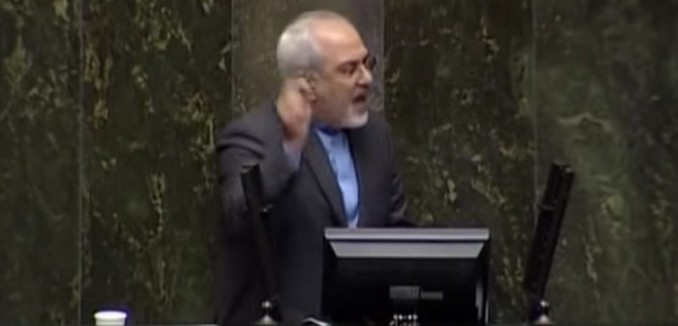Iranian Holocaust denial, which echoes Nazi rhetoric, exposes an intent “to [repeat] that same crime,” Emanuele Ottolenghi, a senior fellow at the Foundation for Defense of Democracies (FDD), argued in an article published Monday in Tablet Magazine. Ottolenghi rejected claims that it is misguided to associate Iran with Nazi Germany.
After the war, Nazi fugitives who fled to South America and the Middle East sought to obfuscate their own part in the twentieth century’s worst crime with hope that Nazism could yet make a comeback. They depicted the Holocaust as a gigantic lie that Jews concocted in order to smear German reputation; and so they could pose as victims and blackmail the world to support their dark designs.
But theirs was not just an effort to rehabilitate Nazism. They were also seeking allies—in the Middle Eastern and elsewhere—who could finish the job. And Arab nationalism, with its resolve to eradicate both Western influence and Israel’s existence from the region, was the perfect candidate. Nazi-era war criminals like Alois Brunner, who died in Syria, and Johann von Leers, who died in Egypt, worked in the service of propaganda departments of Arab nationalist regimes, and introduced Holocaust denial to the Arab world as a staple of anti-Zionist propaganda….
Given how entrenched and pervasive Holocaust denial and anti-Semitism are within the Iranian regime, it is hard to dismiss the possibility that the regime’s principal motivation for embracing this narrative is to provide justification for its recurrence. Holocaust deniers, after all, have long sought to excuse the crime’s perpetrators and shift guilt onto its victims as a prelude to repeating that same crime.
Ottolenghi pointed out that even though Iranian Supreme Leader Ayatollah Ali Khamenei prohibited “outright” Holocaust denial, it wasn’t because he disagreed with it, but because he wanted “to safeguard Iran’s international image.” Instead, Iran has pushed a theme that “regardless of the magnitude of Nazi atrocities, the Zionists had callously exploited them in order to blackmail world opinion in support of their Palestine grab.” This “softer” variation of Holocaust denial, Ottolenghi wrote, has been adopted by President Hassan Rouhani, widely regarded as a moderate.
Ottolenghi’s argument is similar to one made by Raobert Wistrich, the scholar of anti-Semitism who died yesterday at age 70, in a 2012 interview with Ben Weinthal of FDD. Wistrich explained “that the constant efforts to deny, relativize or invert the Holocaust—especially against Israel—are a conscious (or unconscious) invitation to repeat it.”
In the Iranian case, around 2005, Mahmoud Ahmadinejad began to publicly proclaim his compulsive insistence that the Holocaust was a myth, and he has never let up since then. His consistent denial of the Holocaust went hand-inhand with brazen threats to wipe Israel off the map. He has called Israel a “rotting branch” and hammered away at the need for “a world without Zionism.” It is striking that while the world is finally paying close attention to Iran’s relentless drive for nuclear weapons, it is largely ignoring Iranian state-sponsored anti- Semitism and Holocaust denial. But the two issues are interrelated precisely because of Iran’s repeated calls to annihilate Israel.
It is amazing to note the degree to which this Iranian Shi’ite annihilationist ideology with its apocalyptic religious underpinning is being glossed over. My point is that this state-sanctioned determination to wipe Israel off the face of the earth means exactly what it says. The will to exterminate is the crucial point here.
This is what happened with Hitler from January 1939 onwards when he incessantly repeated his intention to destroy European Jewry exactly as Ahmadinejad does today regarding Israel.
[Photo: MEMRITVVideos / YouTube ]




